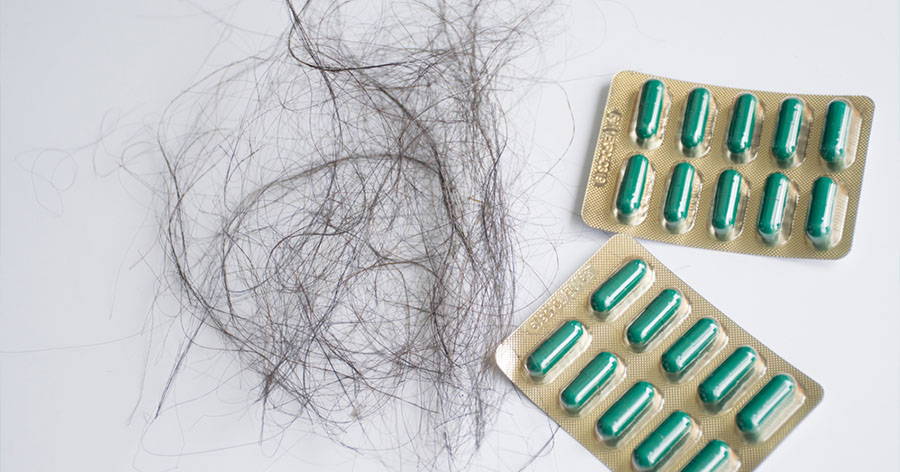Source: roboto / Shutterstock.com
Hair loss can happen in different ways. Your scalp can shed hair prematurely or hair growth rates can slow substantially. For some people, shedding and slow growth happen at the same time. While different factors can cause hair loss (aging, heredity, poor diet), hair loss from medication is typically a side effect of a drug you’re taking. Medications cause hair loss when their effects interfere with your scalp’s normal hair growth cycle. Along with continued hair growth, a normal, healthy scalp will shed anywhere from 100 to 150 hairs a day. A healthy hair growth cycle normally will move through three basic, repeating phases:
- Anagen phase - a three to five-year period in which active hair growth occurs
- Catagen phase - a two to a four-month resting period in which hair growth stops
- Telogen phase - a two to a five-month period in which hair sheds and new hairs start to grow
Different areas of your scalp go through different phases of the hair growth cycle. When medication side effects happen, certain areas of your scalp may be more susceptible to hair loss. The good news is there are steps you can take to reverse hair loss from medication.
Tips on How to Reverse Hair Loss From Medication
Talk With Your Doctor About Adjusting or Stopping the Medication
Medications known to cause hair loss include:
- Immunosuppressants
- Antibiotics
- Anti-clotting drugs
- Retinoid-derived acne medications
- Chemotherapy drugs
Hair loss from medication typically doesn’t become noticeable until around 90 days after you first start taking the drug. While it may not be possible to go off a prescribed medication, talking with your doctor about reducing your dosage levels or alternative treatment approaches may help stop or at least reduce hair loss.

Afro American Hair and LLLT
How Does Dandruff Occur & How Can I Manage It?